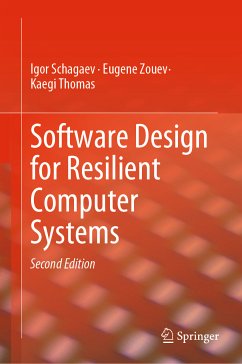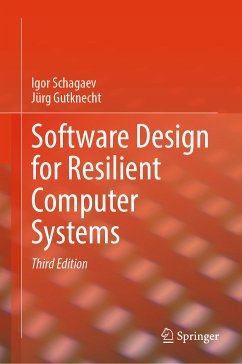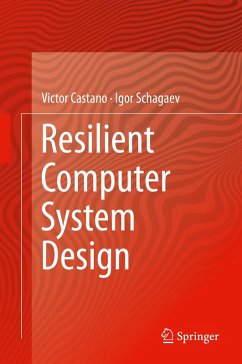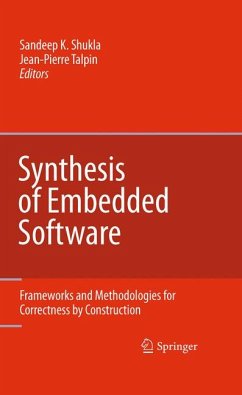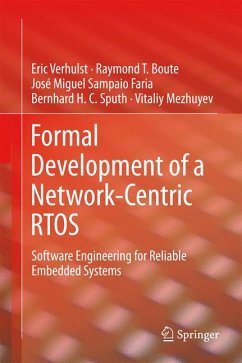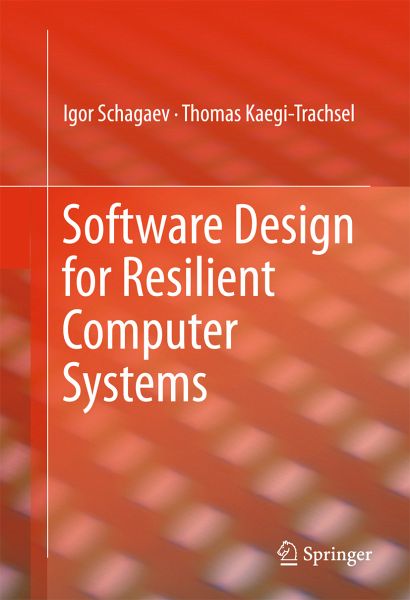
Software Design for Resilient Computer Systems (eBook, PDF)
Versandkostenfrei!
Sofort per Download lieferbar
88,95 €
inkl. MwSt.
Weitere Ausgaben:

PAYBACK Punkte
44 °P sammeln!
This book addresses the question of how system software should be designed to account for faults, and which fault tolerance features it should provide for highest reliability. The authors first show how the system software interacts with the hardware to tolerate faults. They analyze and further develop the theory of fault tolerance to understand the different ways to increase the reliability of a system, with special attention on the role of system software in this process. They further develop the general algorithm of fault tolerance (GAFT) with its three main processes: hardware checking, pr...
This book addresses the question of how system software should be designed to account for faults, and which fault tolerance features it should provide for highest reliability. The authors first show how the system software interacts with the hardware to tolerate faults. They analyze and further develop the theory of fault tolerance to understand the different ways to increase the reliability of a system, with special attention on the role of system software in this process. They further develop the general algorithm of fault tolerance (GAFT) with its three main processes: hardware checking, preparation for recovery, and the recovery procedure. For each of the three processes, they analyze the requirements and properties theoretically and give possible implementation scenarios and system software support required. Based on the theoretical results, the authors derive an Oberon-based programming language with direct support of the three processes of GAFT. In the last part of this book, they introduce a simulator, using it as a proof of concept implementation of a novel fault tolerant processor architecture (ERRIC) and its newly developed runtime system feature-wise and performance-wise. The content applies to industries such as military, aviation, intensive health care, industrial control, space exploration, etc.
Dieser Download kann aus rechtlichen Gründen nur mit Rechnungsadresse in A, B, BG, CY, CZ, D, DK, EW, E, FIN, F, GR, HR, H, IRL, I, LT, L, LR, M, NL, PL, P, R, S, SLO, SK ausgeliefert werden.



